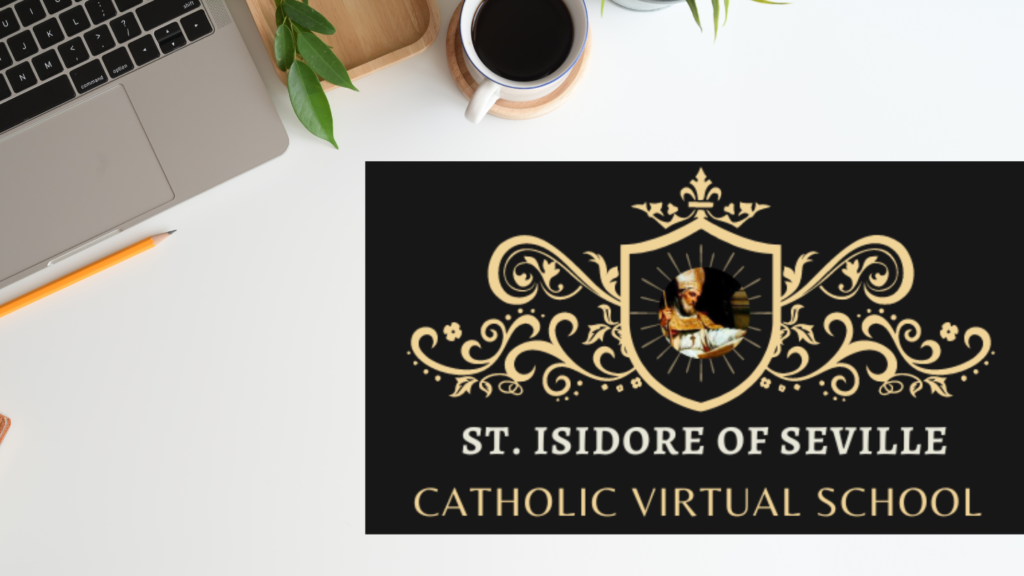The Oklahoma Supreme Court ruled June 25 the state's charter school contract with the St. Isidore of Seville Virtual School was in violation of state laws, the state constitution and the U.S. Constitution.
A state school board in Oklahoma had voted in June 2023 to approve an application by the Archdiocese of Oklahoma City to establish the St. Isidore of Seville Virtual School, which would have been the nation's first publicly funded religious charter school if it survived the legal challenge.
While proponents of the contract with St. Isidore argued the Catholic school met all criteria for approval as a charter school and should not be discriminated against for its religious identity, some education activists and other opponents, who called it a violation of the separation of church and state, objected to the use of public funds for the school and filed a lawsuit asking a state court to block them.
Justice James Winchester wrote in the majority opinion, "Under Oklahoma law, a charter school is a public school.
"As such, a charter school must be nonsectarian. However, St. Isidore will evangelize the Catholic faith as part of its school curriculum while sponsored by the State. This State's establishment of a religious charter school violates Oklahoma statutes, the Oklahoma Constitution, and the Establishment Clause," he added.
The high court also found that Article 2, Section 5 of the Oklahoma Constitution prohibits the state from using public money for the benefit or support of any religious institution. A 2016 ballot measure in the state would have repealed that measure, but voters rejected that effort.
Supporters of the school, however, indicated they may pursue other legal avenues to seek approval.
"St. Isidore is considering its legal options but today's decision to condone unconstitutional discrimination against religious educators and the children they serve is one that the school will continue to fight," John Meiser, director of the Religious Liberty Clinic at Notre Dame Law School, said in a statement. "St. Isidore merely seeks to join Oklahoma's diverse array of charter schools, bringing educational choice and opportunity to communities and families in need."
In a joint statement, Archbishop Paul S. Coakley of Oklahoma City and Bishop David A. Konderla of the Diocese of Tulsa and Eastern Oklahoma said the ruling "is very disappointing for the hundreds of prospective students and their families from across the state of Oklahoma who desired the educational experience and promise of St. Isidore of Seville Catholic Virtual School."
The bishops said they would "consider all legal options" moving forward, and that they "remain steadfast in our belief that St. Isidore would have and could still be a valuable asset to students, regardless of socioeconomic, race or faith backgrounds."
The case placed the state's governor and attorney general -- both Republicans -- at odds over the school board's decision to provide taxpayer funds for the Catholic school, with the attorney general calling it unconstitutional and a potential gateway for Muslims and Satanists to do the same.
"I'm concerned we've sent a troubling message that religious groups are second-class participants in our education system," Gov. Kevin Stitt said in a statement.
"Charter schools are incredibly popular in Oklahoma -- and all we're saying is: we can't choose who gets state dollars based on a private entity's religious status," Stitt said. "Religious freedom is foundational to our values, and today's decision undermines that freedom and restricts the choices available to Oklahomans."
Stitt said he was "disappointed" by the attorney general's "attack on religious liberty and the school choice movement."
"I remain hopeful the U.S. Supreme Court will hear the case and grant St. Isidore the right to establish their school," he said.
Oklahoma Attorney General Gentner Drummond in his own statement called the state Supreme Court's ruling "a tremendous victory for religious liberty."
"The framers of the U.S. Constitution and those who drafted Oklahoma's Constitution clearly understood how best to protect religious freedom: by preventing the State from sponsoring any religion at all," Drummond said.
"Now Oklahomans can be assured that our tax dollars will not fund the teachings of Sharia Law or even Satanism," he said. "While I understand that the Governor and other politicians are disappointed with this outcome, I hope that the people of Oklahoma can rejoice that they will not be compelled to fund radical religious schools that violate their faith."
Americans United for Separation of Church and State, the American Civil Liberties Union, Education Law Center, and Freedom From Religion Foundation, praised the ruling in a joint statement.
"The Oklahoma Supreme Court's decision safeguards public education and upholds the separation of religion and government," they said. "Charter schools are public schools that must be secular and serve all students. St. Isidore of Seville Catholic Virtual School, which plans to discriminate against students, families, and staff and indoctrinate students into one religion, cannot operate as a public charter school."
But Misty G. Smith, principal of St. Isidore of Seville Catholic Virtual School, said in a statement, "Today's decision is a setback for Oklahoma K-12 students and to the ideal of free choice and open opportunity in education."
Smith said she hoped the court's error would be corrected "and that St. Isidore will help open the path toward a future where the needs of all Oklahoma students and families are fulfilled, regardless of their background, income, or beliefs."

